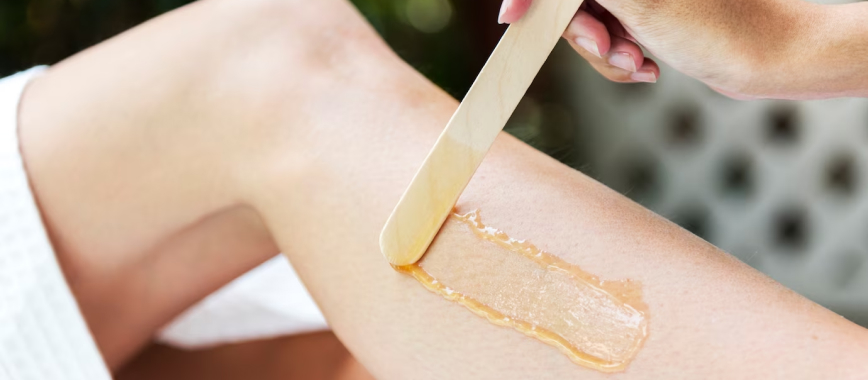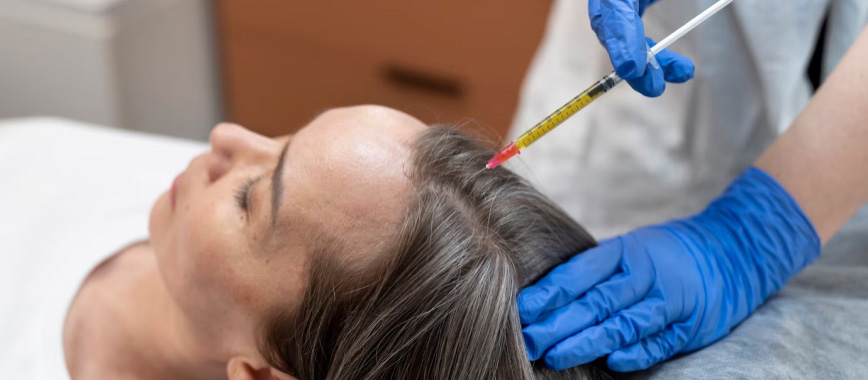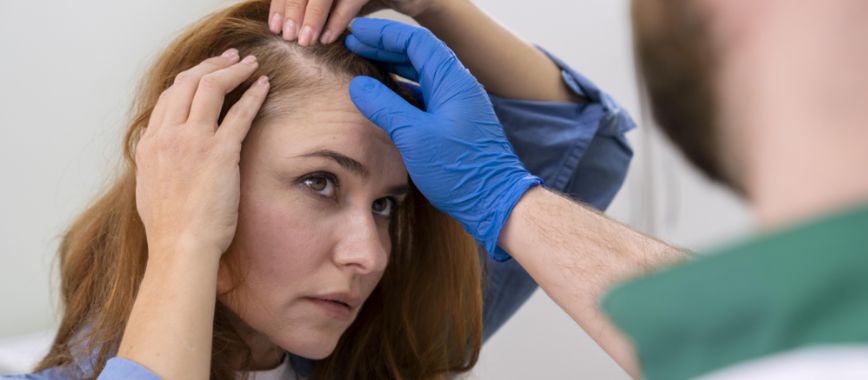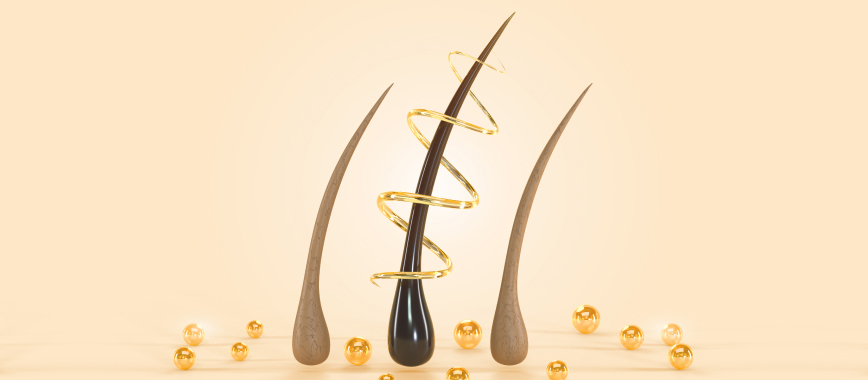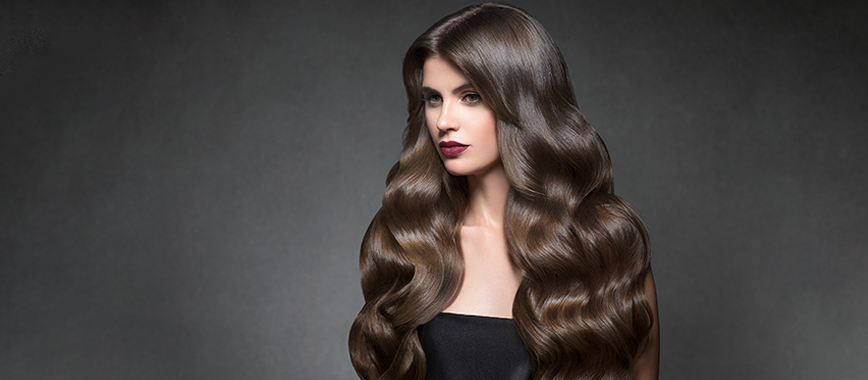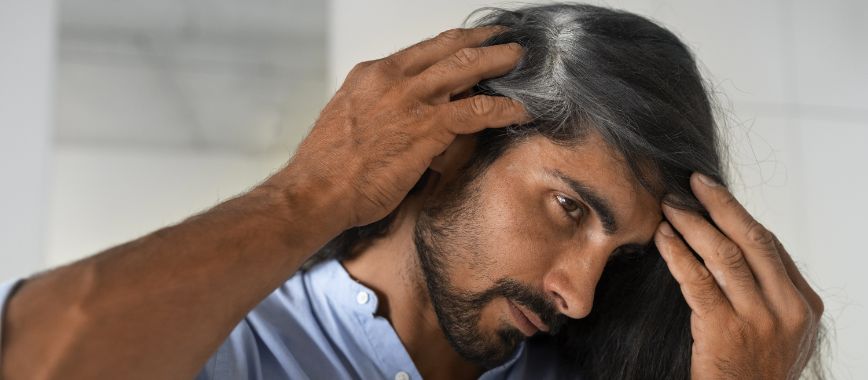Search Healthy Tips here
- Please wait..
Explore categories
Are you tense for the continuous hair fall?

Experiencing continuous hair fall can be a cause of concern and stress for many individuals. Your hair is an integral part of your identity, and losing it can affect your self-esteem and confidence. In this blog post, we will delve into the common causes of hair fall and provide some practical tips and insights to help you address this issue and regain healthier, stronger hair.
Understand the Causes, Hair fall can be triggered by various factors, including:
Hormonal imbalances:
Fluctuations in hormone levels, such as during pregnancy, menopause, or thyroid disorders, can lead to excessive hair shedding.
Nutritional deficiencies: Inadequate intake of essential nutrients like vitamins, minerals, and proteins can weaken hair follicles, resulting in hair fall.
Stress and emotional factors: Prolonged periods of stress, anxiety, or emotional trauma can disrupt the hair growth cycle and accelerate hair loss.
Scalp conditions:
Conditions like dandruff, fungal infections, or dermatitis can contribute to hair fall.
Styling and hair treatments: Frequent use of heat styling tools, chemical treatments, and tight hairstyles can damage the hair shaft and lead to breakage.
Adopt a Healthy Hair Care Routine:
Use mild and sulphate-free shampoos and conditioners that are suitable for your hair type.
Avoid excessive heat styling and minimise the use of harsh chemicals.
Be gentle while brushing or combing your hair, and avoid pulling or tugging.
Opt for a wide-toothed comb or a brush with soft bristles to prevent unnecessary hair breakage.
Massage your scalp regularly to stimulate blood flow and promote hair growth.
Avoid tight hairstyles that pull on your hair follicles, causing damage and breakage.
Eat a Balanced Diet:
A nutritious diet plays a crucial role in maintaining healthy hair. Ensure your meals include:
Protein-rich foods like lean meats, fish, eggs, and legumes to support hair structure.
Foods rich in vitamins and minerals such as fruits, vegetables, whole grains, and nuts provide essential nutrients.
Omega-3 fatty acids found in fish, flaxseeds, and walnuts, which can help nourish the hair follicles.
Manage Stress:
Since stress is a common trigger for hair fall, it's important to find effective ways to manage stress levels:
Engage in regular exercise, which can reduce stress and improve blood circulation to the scalp.
Practice relaxation techniques like meditation, deep breathing, or yoga to calm your mind.
Seek support from friends, family, or a therapist to help cope with emotional stressors.
Consult a Professional:
If your hair fall persists despite your efforts, it's advisable to consult a dermatologist or a trichologist. They can diagnose any underlying conditions, provide personalised advice, and recommend suitable treatments such as medications, topical solutions, or hair therapies.
In women, what are the most common causes of hair loss?
Your hair style can cause hair loss when your hair is arranged in ways that pull on your roots, like tight ponytails, braids, or corn rows. This type of hair loss is called traction alopecia. If hair follicles are damaged, the loss can be permanent.
Toxic substances, including chemotherapy, radiation therapy and some medications. These cause sudden hair loss that can occur anywhere on your body. It happens to hair in the growth stage. Sometimes, this type of hair loss can be permanent if your hair follicles are damaged.
Extreme physical stress or shock to your body: This causes temporary hair loss. This category includes events like losing a lot of weight, surgery, anaemia, illness and having a baby.
Extreme emotional stress: mental illness, the death of a loved one, etc.
Medications and supplements: blood pressure medicines, gout medicines and high doses of Vitamin A.
Hormone changes caused by pregnancy, menopause or birth control pills.
What causes FPHL (Female Pattern Hair Loss)?
- Genes: Your family’s genes can cause thinning of hair along the top of your head.
- Ageing: Hormone changes as you age can cause balding.
- Menopause: This type of hair loss often gets worse when oestrogen is lost during menopause.
Experiencing continuous hair fall can be distressing, but with the right understanding and care, you can address this issue and nurture healthier hair. By identifying the causes, adopting a healthy hair care routine, maintaining a balanced diet, managing stress levels, and seeking professional guidance when needed, you can take proactive steps towards reducing hair fall and promoting hair regrowth. Remember, patience and consistency are key, and with time, you can regain the luscious locks you desire.




